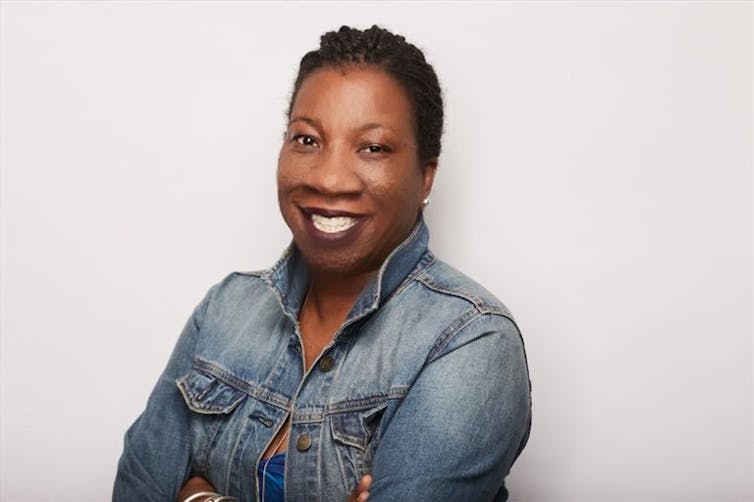Not everyone can say #MeToo and we need to tackle the causes of sexual violence
- Written by Claire Moran, Honorary Research Fellow, The University of Queensland
Six months after the explosive allegations of sexual harassment against Hollywood producer Harvey Weinstein came to light, giving impetus to the #MeToo movement, this series looks at the aftermath of the movement, and if it has brought about lasting change to sexual harassment and gender equality.
The global outpouring of stories and support for survivors prompted by #MeToo began a long-overdue conversation about sexist behaviour and men using positions of power to exploit and abuse women. The movement has provided a platform and a sense of solidarity for millions, drawing global attention to gender inequality and sexual violence.
While #MeToo has certainly shone a spotlight on the topics of sexual violence and gender inequality, in reality the movement is neoliberal feminism masquerading as collective action. This is because the individual focus of #MeToo means the structural inequalities that facilitate sexual violence are neither being addressed nor recognised. As such, the #MeToo movement does little to help the women who need it most.
Not everyone can say #MeToo
The #MeToo movement is mostly centred around the experiences of white, affluent, and educated women. The hashtag went viral when tweeted by Alyssa Milano – a white celebrity. But the “Me Too” movement had actually been created by black female activist Tarana Burke a decade before.
Milano had stumbled on the phrase, unaware of its origins, and in some ways got the credit for it.
This highlights the visibility and credibility that whiteness and power bring, and the invisibility of women of colour, the erasure of their work, experiences and voices. We must also acknowledge there are millions of women globally who do not even have access to the technology needed to post “#MeToo”.
Structural and cultural barriers
The #MeToo movement puts the responsibility squarely on individual women to come forward and individual men to change their behaviour. This in turn promotes a narrative of autonomy and personal responsibility, while ignoring broader constraints.
Structural inequities defined not just by gender – but also by race, class, (dis)ability and other markers of identity – are rendered invisible.
 The Me Too movement was actually created by black activist Tarana Burke a decade ago.
Penn State/Flickr, CC BY
The Me Too movement was actually created by black activist Tarana Burke a decade ago.
Penn State/Flickr, CC BY
Sexual violence is itself a symptom, not a disease, and it occurs at higher rates where there are greater structural and cultural barriers to gender equality. These barriers include social norms, policies and systems that limit women’s access to equal treatment and opportunities, and can exist across government policy, the legal system, education, in the workforce, and in healthcare settings.
Read more: How #MeToo can guide sex education in schools
This means the most vulnerable women are most at risk, and many women do not have the capacity, or freedom, to speak out about their experiences of sexual violence – be it in the workplace or elsewhere.
Migrant and refugee women, for example, face significant barriers to reporting sexual violence. These might include a lack of support, poor knowledge of the law, limited work options, mistrust of the police and legal systems, language and cultural barriers, and concerns around immigration or visa status.
Likewise, women who aren’t highly educated or are from a lower socioeconomic background may be living pay cheque to pay cheque, have to support families, or may struggle to find alternate employment. For these women, the stakes are simply too high to speak out and are often also too high to refuse unwanted attention.
A long way to go
Many countries, including Australia, have a long way to go on gender equality. And when we consider Australia’s commitment to gender equality, things look pretty bleak. Women are over-represented in casual, part-time and low-paid industries, and remain underrepresented at a leadership level – both in the public and private sectors.
Power imbalances are endemic in such conditions, and these imbalances make it more difficult for women to report abuse or harassment. This means women are more likely to find themselves in positions of vulnerability, where men wield the power.
Australia ranked 35th out of 144 countries in The World Economic Forum’s Global Gender Gap Index in 2017. This is a drop from a ranking of 15 in 2006.
A recent IPSOS poll on global misconceptions of equality found that one-third of Australians polled agreed that “equal rights for women has gone far enough”. This shows the depths of the problem in Australia – which is not easily solved by a movement like #MeToo.
Authors: Claire Moran, Honorary Research Fellow, The University of Queensland




